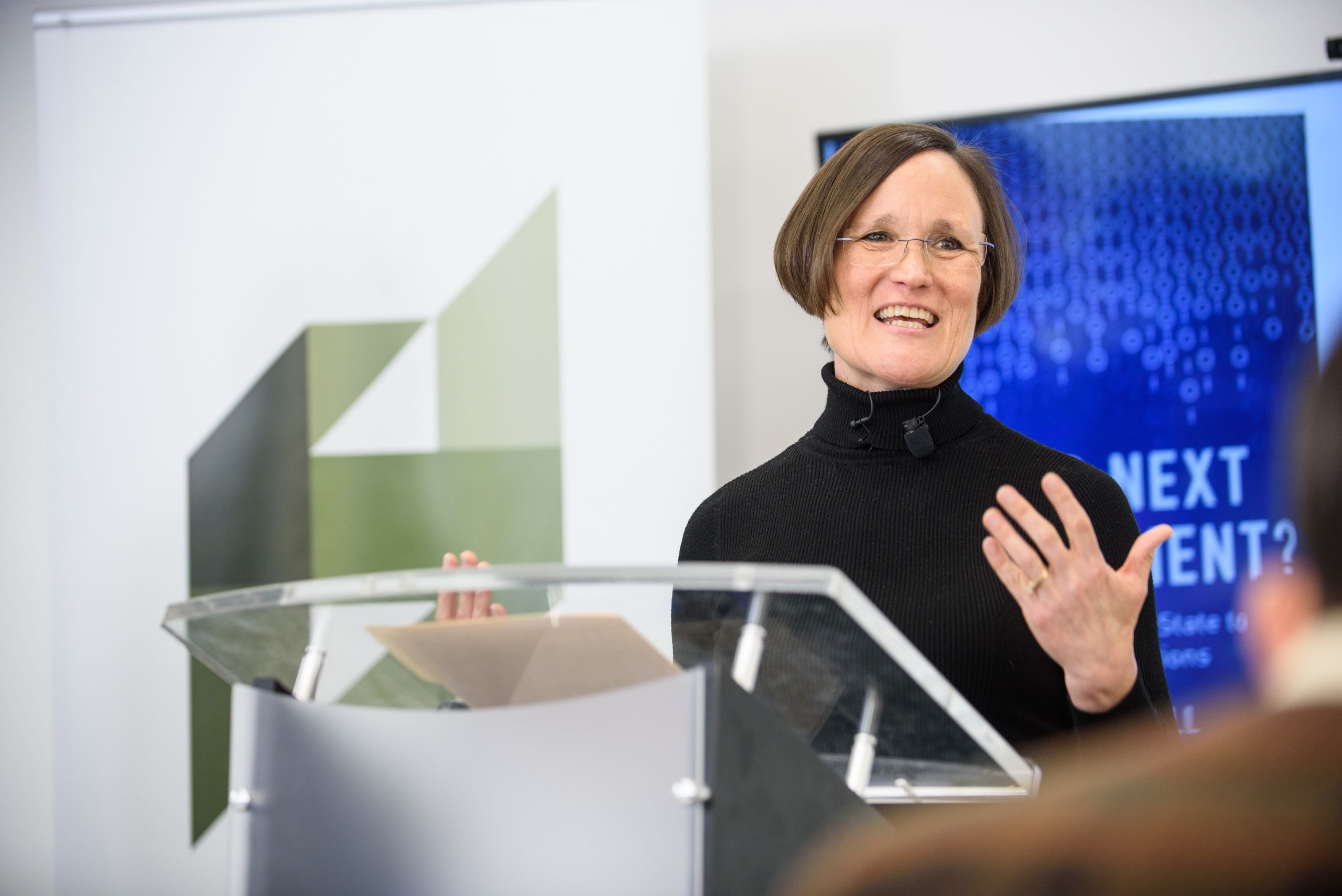A Cross-Ideological Consensus for Better Classroom Discourse
How three discursive principles can
help foster great student conversations

An interdisciplinary team of University of North Carolina at Chapel Hill professors recently surveyed UNC graduates about free expression on campus and published the results in an extensive report. “A careful reading of our results suggests a hidden cross-ideological consensus on free-expression issues,” UNC professor Timothy Ryan, one of the report’s authors, explains in a blog post.
While conservative students were almost three times as likely to censor themselves in class as their liberal peers— 68 percent compared with 24 percent — both ideological groups overwhelmingly said that students with views opposing their own were an “important part of the campus community.” Thirty-seven percent of liberal respondents also said there were too few opportunities on campus to hear conservative perspectives, compared with only 16 percent who said there were too many.
“Looking at patterns like these, it seems wrong to think of free expression on college campuses as a topic that must pit liberals against conservatives,” Ryan wrote. “At UNC, at least, many liberals and conservatives seem to want an environment where they can learn about and engage with views with which they disagree.”
This, then, is college administrators and professors’ challenge: to empower students to engage productively, civilly, and humbly with peers who think differently than they do.
In a video interview with Big Think, a multimedia platform aimed at creating “the world’s largest archive of lessons,” Emily Chamlee-Wright, president of the Institute for Humane Studies, says that colleges can support learning conversations on campus by helping students internalize, practice, and celebrate three key discursive principles: intellectual humility, critical thinking, and sympathetic listening.

Institute for Humane Studies president Emily Chamlee-Wright
Institute for Humane Studies president Emily Chamlee-Wright

Photo by Edwin Andrade on Unsplash
Photo by Edwin Andrade on Unsplash
“None of us can ever have the full lock on truth,” Chamlee-Wright, who was formerly a provost and dean at Washington College and an economics professor at Beloit College, says. “We can only see the world from a particular vantage point.” Recognizing this, and understanding that our own knowledge is limited because of our particular vantage point, gives us intellectual humility.
“That limited knowledge that we can have about the world means that we must enter into any conversation with a deep sense of humility,” Chamlee-Wright explains, “because I need you to help me fill in my knowledge gaps. Right? And you need me.”
Students should also be able and eager to engage in critical thinking: to interrogate one’s own and others’ arguments carefully and objectively. To think critically is to “identify gaps in logic or shortfalls in evidence-based argumentation,” Chamlee-Wright says.
Perhaps the most important design element of a constructive conversation is sympathetic listening. Too often a political discussion becomes a militarized debate in which participants seek to undermine and attack their “opponents.” When that happens, no one in the conversation is treating one another with good faith. Participants may be listening, but only in order to set up their next volley. What sympathetic listening means, Chamlee-Wright explains, is “that I'm willing to set aside, even if it's just temporarily, that hunt for the slightest misstep in logic or reasoning.” She adds, “Setting that aside for a moment so that I can listen really carefully to what my conversation partner is saying, so I can understand from their perspective what their intellectual project is or why it is that they are looking at the same world I'm looking at but coming to a very, very different conclusion.”
Helping students gain strong instincts toward these three discursive principles is crucial for the future of higher education, particularly a liberal-arts education.
As tuitions rise and the job market fluctuates, the value of a liberal-arts education is under increased scrutiny. When students could be spending their college years learning how to code, why should they study the liberal arts?
Perhaps because it is in liberal-arts classrooms where transformative academic discourse has the greatest potential — where, during interrogations of politics, philosophy, history, and art, students can become intellectual explorers crossing borders into new perspectives and new terrain. But you can only become an explorer when you slip out of your own assumptions and embrace intellectual humility, critical thinking, and sympathetic listening. And students can only learn from transformative, intellectually diverse classroom conversations if professors help foster them.
In his 2019 Carr Lecture, University of British Columbia president and vice-chancellor Santa J. Ono said,
I believe that I am a better scholar because of my liberal-arts education, because it was intentionally diverse and heterogeneous, because it made me move outside of my comfort zone into areas of thought and discussion that were uncomfortable to me... it broadened my mind, it exercised my mind.
The recent UNC report on free expression suggests that both liberal and conservative students are eager for classroom conversations that fulfill the promise of liberal arts by, as Ono put it, broadening and exercising their minds. If colleges can create a healthy discursive culture around intellectual humility, critical thinking, and sympathetic listening, their students will be able to engage in the kind of conversations that open minds, change lives, and continue outside classroom walls.
The Institute for Humane Studies is an educational nonprofit that partners with professors to promote the teaching and research of classical liberal ideas and to advance higher education’s core purpose of intellectual discovery and human progress. Learn more at TheIHS.org.



